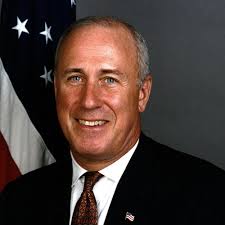 |
| University of New Hampshire, Durham, NH |
NPR had a report on New Hampshire and it's university system yesterday which was pretty depressing. It was actually a report on student debt nationwide and the outcomes for kids who had borrowed to go to college, invested in themselves and in their own futures, kids who had done all those things we've all been told are good for the kids and good for the country. The distress and ruin taking that advice has caused was the focus, and they were using New Hampshire as a case in point because as a state it is the worst in the nation in providing support for its college system and its students. In-state tuition for New Hampshire residents is, cost adjusted, the highest in the nation.
They interviewed two graduates of UNH, a young woman who graduated with a double major in political science and English, minor in Spanish and her boyfriend who got his BA and then his law degree from UNH. He is currently working for $10 an hour at some job in a law firm. They didn't say if he'd passed the bar, but presumably, he's not an associate at the firm; likely he's doing clerical work. A paralegal would make much more.
The woman has yet to find a real job, but cobbles together jobs in retail, jobs which do not require college degrees. From a financial perspective, they'd both have been better off not going to college which only served, thus far at least, to burden them with debt.
One might say, well what did you expect--with a BA in English?
On the other hand, there is the story of my friend who worked as a welder at the GE airplane engine plant and moved up quickly through the organization until they wanted to elevate him to management, to run an entire section of the plant. But they called him in and told him he couldn't have the job everyone knew he could do well, in fact the job he was already doing well as an acting chief, because he didn't have a college degree.
So industry can be part of the problem, by sheer stupidity. There are industries which require some certification or another when the employee has already demonstrated competence in a much more meaningful way.
College degrees become important for all the wrong reasons: Because the people who run industry are too lazy to think of what real quality means, are unwilling to think about how to identify and reward real talent and initiative and effort among employees. Just shuffle paper--if the employee has a paper for the wall that's all that counts.
All education is a leap in faith: The student studies things for which there is no apparent immediate reward, from learning what sounds go with which letters when you are learning to read, to reading Shakespeare or Camus or learning calculus, there is often no real world benefit evident at the time you are in the classroom. As a student, you have to trust the adult doing the instruction this is all worthwhile.
But the English department sees things differently: We teach Hemingway because it broadens the experience of the student. We are not here to do trade school training. Literature courses are not apprentice training. You want that, go to tech school. Liberal arts has less direct benefits.
When you watch a show like "West Wing" you see what verbal people think is the power of the word, the power of emotive writing. Peggy Noonan, Dee Dee Myers made good careers out of spinning images, out of writing stirring phrases for Ronald Reagan or Bill Clinton to deliver. So when Reagan spoke of touching the face of God, Noonan wrote his script for him and people were uplifted. But, fact is, about as many people make a living by writing inspiring stuff for politicians or corporate heads as make it in professional sports, percentage wise. It's the rare, lucky, talented person who can actually translate the liberal arts into a viable living.
The fact is, we probably ought not be encouraging so many people to go to college. But the fact remains, for those who have the financial backing to do so, it can be life changing for the individual, and the engineers, scientists, mathematicians, linguists, economists and psychologists we train at universities benefit the nation at large. In New Hampshire, we hear, well, but why should we spend our money on these kids, who may get their educations and take their skills elsewhere? Let other states do that.
When veterans returning from World War II went to college in droves on the GI bill, people who would never have gone to college got degrees. This is frequently cited as a prime example of how investing in the work force, investing in higher education benefits the nation at large. But was it college or was it simply the return of a lot of eager workers which fueled the sustained post war economic boom?
As someone in the NPR piece noted, New Hampshire, compared to most states, has no tax base. It is a state which has chosen to not support it's citizens, especially its children. If providing grade school through graduate school instruction for New Hampshire children means an income tax or a sales tax, well, no thank you.
I have friends like this. They had kids and they said, "They got public schooling through high school, but we need to provide for our own retirement. We can't afford to pay for college. They want college? That's on their own dime. They got to get loans." And these same people owned summer homes, went on cruises and trips to Europe. But they did not have money for college.
They are the parental equivalents of New Hampshire.
 |
| Keene State College, New Hampshire |
























